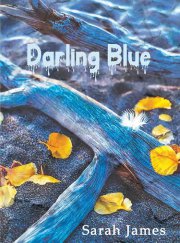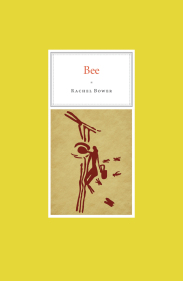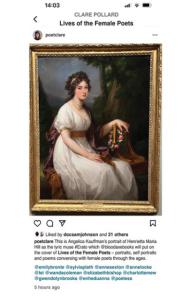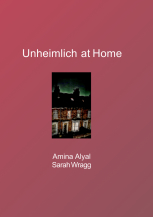
2016
DECEMBER CONTRIBUTORS
David Callin, Mike Dillon, Alan Harris, Deirdre Hines, Anthony Keers, Boris Kokotov, Ronald Moran, Daryl Murananka, Nikki Robson, Jennifer Singleton, J. R. Solonche,
Annie Stenzel, Mark Young.
DAVID CALLIN
Alleluia
After months of trousers, boots and winter
weeds, to see her in a dress
is like finding the first wood sorrel of the year
on your usual walk. You're struck by the casual loveliness
of such self-revelation, with only a modest ta-da,
but there should be trumpets, fanfares for this resurrection out of the homely grass.
This is Bread-and-Cheese, Cuckoo's-Meat, Woodsour,
flowering in the month when folk were wont to go on pilgrimages;
named also, for their changed song, Alleluia:
white petals, purple-veined, and leaves you could eat in a green sauce.
David Callin lives, if not quite at the back of the beyond, certainly within hailing distance of it, on the Isle of Man, in what he likes to call the Deep South of the Kingdom of the Isles. He is married with a wife and two children, all of whom would rather you didn't mention the poetry. He doesn't mind. He has had poems published in quite a large number of magazines, most recently in Prole.
Back to POETRY ARCHIVE
MIKE DILLON
Osprey
A quick pivot
and guillotine
drop
into
a bright confusion
of spray
that gives birth
to a slow ascent
of labored wings
where a taloned
fish flashes
in the Sabbath
morning sun
acutely there
in the way
the rest of us
who watch
from the dock
are not
Mike Dillon lives on Puget Sound, northwest of Seattle in the northwest corner of the United States. Four books of his "regular" poetry have been published, and three books of his haiku. Several of his haiku were included in Haiku in English: The First Hundred Years, from W.W. Norton in 2013.
Back to POETRY ARCHIVE
ALAN HARRIS
Memoir Writers
Resembling archeologists
anthropologists
ghost hunters
dumpster divers
Freudians without a couch
hoping to uncover the audience
waiting for us
between our words
and their lines
until we all find ourselves
knee-deep in discarded memories
forgotten fears and unspoken promises
falsely portraying
writers and readers
using touchpads and blogs
to dig dry wells
to jump into empty rabbit holes
to uncover shallow graves
in the backyards of our parents
as we search for something
resembling truth
Alan Harris is a hospice volunteer and graduate student who helps hospice patients write memoirs, letters, and poetry. Harris is the 2011 recipient of the Stephen H. Tudor Scholarship in Creative Writing, the 2014 John Clare Poetry Prize, and the 2015 Tompkins Poetry Award from Wayne State University.
Back to POETRY ARCHIVE
DEIRDRE HINES
The Country Diary of an Edwardian Lady
In February of nineteen eighty,
'spells of mild weather drew redwing flocks
to the back field, chittucing over
her queenie voice, “Come look what I found”,
Two months into this diary
had only yielded a dog jawbone,
It needed more. “Dead rat at backdoor”
would resuscitate “It's middlin',
Today is a half and half morning..”
Two twigs replaced opposable thumbs,
One see through plastic made do as shroud,
Her broken ruler made measurements
figures replacing biography,
length of tail, of ear to rear, seven
inches, width of tail, barely a half,
weight of black whiskered, white undersided
yellow toothed rat,seven ounces.
We dug out divots by bent spoon
taking turns to twist stubborn sod,
“The insects will eat him,I mean it..”
Too late. Pronouns have consequence.
Was he descended from Nicodemus,
or Justin, or Brutus, or just plain old?
Their story on Saturday radio
that great escape from the labs of NIMH,
drew us like magnetic wordmoths.
ARE, leggy triangle,and a cross
taught them how to read their futures.
I lifted RAT then out of plastic
over barbed wire fence, into field
draped with catkins, pussy willow
until white waters at the Burn,
revealed a cairn of stone beneath
overhanging sticky budded boughs
marked with minute horse-shoe shapes,
the same as those her brolly missed
by a backwater near Kew Gardens,
when forty nine chestnut horses lit
lanterns in leaves botanical for
us all in bibliobiology.
( NIMH-National Institute of Mental Health )
Deirdre Hines is an award winning poet and playwright. Her first book of poetry The Language of Coats includes the poems that won The Listowel Collection 2011. It is published by New Island Books. New poems have appeared in The Bombay Review, Elsewhere, Three Drops from a Cauldron, Abridged, The Derry Post and NWW to name a few. She blogs on poetry at www.alllanguageisastroyofforestblogspot.com Her website is www.deirdrehines.com
Back to POETRY ARCHIVE
ANTHONY KEERS
Tuesday Morning
Space is the fresh air above the
flock of magpies that chase the glimmer
of stars through the exchange of time
and money.
The planets are the stones that
stick in our shoes and asteroids
are the cars that run red lights.
Nebulas are sucked into
the mini-tornadoes
outside corner shops,
alien life
is sucked through the filter
of a cigarette and
the final frontier is
the distance between
a hurried
lady and a moving bus.
The universe is expanding
towards the snooze button.
Anthony Keers lives within the city of Manchester, England. He currently works within the Asbestos industry and has poetry forthcoming in Ink, Sweat and Tears.
Back to POETRY ARCHIVE
BORIS KOKOTOV
392
I went to Center Stage theater
to see Pinter’s The Homecoming
premiere, here in Baltimore.
My girlfriend got mad at me lately,
she's not around, so I got a ticket
just for myself, the cheap one.
Finding the seat was fairly easy --
the last in the row. Looking around
I spotted a small plate
next to the exit door. “No more
than 392 persons are permitted
in this area at any time”, it read.
When the performance was over
it was ten minutes break and then
a discussion began, actors and patrons
got engaged in a lovely exchange
about the plot and characters.
At some moment I raised my hand
and asked how we have arrived
to this exact number – and pointed
to the obscure plate. No one had a clue.
The play is about a PhD coming
home with his new wife after six
years of absence – a big surprise.
Now, she wants to screw both
his younger brothers and his dad
getting enthusiastic response
not only from members
of the household but also
from cheerful audience confined
by the magical number
thoroughly calculated
in the depth of city’s fire department.
The theater-coming is precarious;
shouldn’t the sign be bigger,
the number smaller, the door wider?
We cannot escape reality, I guess,
but shouldn't we have a better chance
of escaping a theater?
And maybe, just maybe, similar plates
have to be issued for every dwelling
and for every outdoor space.
So when I came home that night
I quickly made one out of plywood,
wrote on it: "No more than 2 persons
are permitted in this area at any time”,
and nailed it to my bed headboard.
Then I called my girlfriend...
Boris Kokotov is the author of several books of poetry. His poems have been published in periodicals in USA, Russia, Germany, Australia, and Israel. His translations from German Romantics were published in the anthology Vek Perevoda (The Century of Translation) in Moscow. His translation of Louise Glück's "The Wild Iris" was nominated for the best translation of the year 2012 in Russia. Most recently his work appears in Allegro, The Bewildering Stories, Boston Poetry Magazine, Constellations, and Chiron Review. He lives in Baltimore.
Back to POETRY ARCHIVE
RONALD MORAN
Fall Reverie
In the solitude of my living tomb, I am thinking
that
the over-pruned branches of my oak tree grew
too much life
this past summer, and, as they divest their debris
on my front lawn,
should I have them trimmed back again or should
I have my one
tree removed, thus agitating our HOA Socialist
chapter
in this hyperactive, suburban sprawl I chose over
a decade ago
to move to with my dying wife, since we had family
up the street?
All have left now, and so has my Jane, leaving me
to declare,
I don't want anyone worrying about me. I'm fine,
sure,
just like both sides in the First World War living
in trenches
dug for death, but that's a bit dramatic, isn't it,
as if
I were talking to someone or had a live audience
at hand,
another fantasy in this whimsical world I made
for myself,
for you, too, all of you, some known, loved, now
vanishing,
like life receding in branches of this tree I might
sacrifice.
Ronald Moran lives in Simpsonville, SC, USA and has had 13 books of poetry published, the most recent entitled Eye of the World (Clemson University Press, 2016). He has received a number of awards and distinctions for his poetry.
Back to POETRY ARCHIVE
DARYL MURANAKA
After the Disaster
After the disaster
of smelly pig poop
at the Great Brook Farm,
she resigned herself
to the reality
that her one and only daughter
was a city girl,
afraid of the farm smells,
the moving, the squirming
animals, the scents
of life and death,
too used to the crowded street
lined with maple trees
and Curious George on TV.
But in the failing light
of Grandpa’s country garden
by the light of the massive fire
burning in a crumbling
cinder block stove,
after charred marshmallows
for dessert,
she finds herself
creeping up,
sneaking up,
with the girl
by her side,
on the little green flashes
dancing around the garden,
catching the blinking bugs
in her hands
and sharing them
like a sacred secret.
Daryl Muranaka was raised in California and Hawaii and lived three years in Fukui, Japan. He lives in Boston with his wife and children. He enjoys aikido and taijiquan and exploring his children’s dual heritages. His first book Hanami, was published in 2015.
Back to POETRY ARCHIVE
NIKKI ROBSON
Invocation
the old year went down in a storm,
its hull snapped
like the bones of a wren.
a woman
knits by the fire,
rips, knits,
knits and rips
unpatterns.
Her needles click a rosary:
knit one, purl one, mother of God,
now and at the hour
fire spits on the rug,
the burnt eyes
of those who cannot sleep.
the woman
stands on grey sand,
each year
sees a bow break the waves
sees the waves break a bow;
in her dreams
sea patterns sand
their fingers
almost touch.
Nikki Robson’s poems have appeared in journals and anthologies including Acumen, Under the Radar, Three Drops from a Cauldron, Lunar Poetry and Obsessed with Pipework. In 2015 she was awarded First Prize in the Elbow Room competition and Highly Commended in Wigtown and Carer’s UK.
Back to POETRY ARCHIVE
JENNIFER SINGLETON
The Periodic Table that Sings Songs
It was just one of those things. Lips melded to
The metal, the ties that bind through science
Of the elements. Lithium, manganese, beryllium,
And titanium, the ultimate eruption of the force
That throws up back into the past into the future.
Calcium, zirconium, a body needs the elements.
Can I not get that from licking the fruit of a body?
A body that lies still and frozen on my bed?
Worn out from the rigors of making love?
Rhodium, silver, odium, periodically I make
Adjustments, to the chemical needs
Of the world that surrounds us. The universe
That makes plans without us.
Is this God making a play happen? Conforming
To the mouths and being in the right light
As we perform. God help me,
Jesus raised Lazarus from the dead. Cannot
The same thing be told of my chemical makeup?
Cannot the same thing be told of my Harp that
Said “Hallelujah” when sung by my own
Work worn-out fingers. Plucked. It seemed
By the own God that created osmium, mercury,
And lead. The ghosts at night were a bit much.
The past with chains I did not believe.
But the dreams became as real as zirconium.
Polonium. I dreamt of chemistry and found very
Little in my mind of the body. The same body
That found sleep-darkness exciting. Yet
Unknown. Chemicals make up who I am. They
Are the thigh-born birth of those righteous and un-
Righteous. They are flirtations that have their
Consequences and necessary shy of tongue. It is
With longing that I consult the Tarot. I learned
To write before I consulted the dead. I learned to
Read before I shied away from the body of water
That would hold me to the elements, the warm
Blanket that you would hold out to me, in the
Time you had left. The saints held a séance. Within
Us, we drew a breath. I wanted my chemical lips
To hold yours, yours with longing. I wanted the birds
To sing their treasured song. Radium, francium,
You have no part here in my body. You are as
Fragment as the ghost. Lingering still, urging as
Though through longing, you can forget the past.
Jennifer Singleton is a librarian with publications in the Australian journal Free Expressions, Black Heart Journal, Phree Write Journal, aauduna, Foliate Oak Journal and several others. She lives with two dogs in Dallas, TX.
Back to POETRY ARCHIVE
J. R. SOLONCHE
The Snow Poem The Editor Asked Me For A Long Time Ago And Which He Probably Thought I Forgot About
Because you have asked for a poem about snow,
I have tried to think of my first memory of snow.
I have tried very long and very hard to remember
if I was a child in my carriage while my mother was pushing me,
with difficulty, through the slush of the melting snow
of late March in front of our apartment building in Manhattan,
on Washington Heights, or if the first snow I remember
was in Montreal. I remember it took seven hours on the bus,
and when we arrived at the hotel, they said they didn’t have a room,
they were full, and we had to find a room somewhere else,
but it was raining, I remember it was rain falling down on the street,
not snow. I remember very well. Perhaps the first was the snow
I played in with my brother after we moved to the Bronx,
how in the winter we used cardboard boxes instead of sleds
because we didn’t have sleds, but I don’t remember.
Maybe the first snow I remember wasn’t even real snow
but was fake snow inside those water-filled, baseball-sized glass
globes we had as kids. My daughter had one on a shelf in her room.
I remember shaking it and watching the fake snow swirl and fall
and swirl and fall and swirl and fall and swirl and fall.
I’m sorry I can’t say for sure. It seems rather sad now that I read
this over. But you know the word snow does appear a lot,
and a poet once said that to discover what any poem is all about,
you just seek out the noun that appears the greatest number of times,
and that’s what the poem is all about. So here is your poem about snow.
He was a very famous poet, you know.
Please remember that.
Black Satin Petunias
I bought black flowers today.
Black Satin petunias.
And they really are black.
My wife says I bought them
because I’m in love with death.
I say I bought them because
they’re unusual, and we’ve never
had black flowers before.
Besides black is my favorite
color and has been my favorite color
since I was a kid, since I asked
my Russian grandfather what
his favorite color was, and
he said it was black. He said
black was God’s favorite color.
He said even after God created light
and all the colors of the rainbow
along with the light and divided
the light from the darkness,
he still needed black the other
half of the time to keep from being
blinded by his own creation.
My wife may be on to something.
I might be half in love with death.
J.R. Solonche has been publishing in magazines, journals, and anthologies since the early 70s. He is author of Beautiful Day (Deerbrook Editions), the chapbook Hearts Content (Five Oaks Press) and co-author of Peach Girl: Poems for a Chinese Daughter (Grayson Books). He lives in New York's Hudson Valley with his wife, the poet Joan I. Siegel, and nine cats, at least three of whom are poets. His latest book, Won’t Be Long is reviewed in this month’s issue.
Back to POETRY ARCHIVE
ANNIE STENZEL
But we are really the dust of ancient stars
The difference between immigrants
and natives
is all in your mind:
Nobody got here first.
We all crawled out
of the womb together
and even that was not the beginning.
Whether you believe in Eve, or evolution,
you must know our ancestors
share a common grave.
Everyone’s blood is blue
while safely contained
in the body
and then
when shed,
always bright red.
How to be Spared Disappointment
1
Scour the hope jar of its contents
then place it in an airless vault where dark
and cold will keep it empty as a bell
forever.
2
Take a keen look at your future companions;
divide by two
subtract the majority.
3
Pile the kitchen table with promises
made by and to those you love.
Remove the table.
4
This part is the hardest: from first
to last, expect that exhaled breath
will follow inhaled breath and vice versa.
Now stop that.
Annie Stenzel‘s poems have recently appeared (or are forthcoming) in the journals Catamaran Literary Reader, Ambit, and Kestrel, and online in Rose Red Review, Unsplendid, and Blue Lyra Review. Her work has twice been nominated for a Pushcart Prize. By day, she works in a San Francisco law office.
Back to POETRY ARCHIVE



